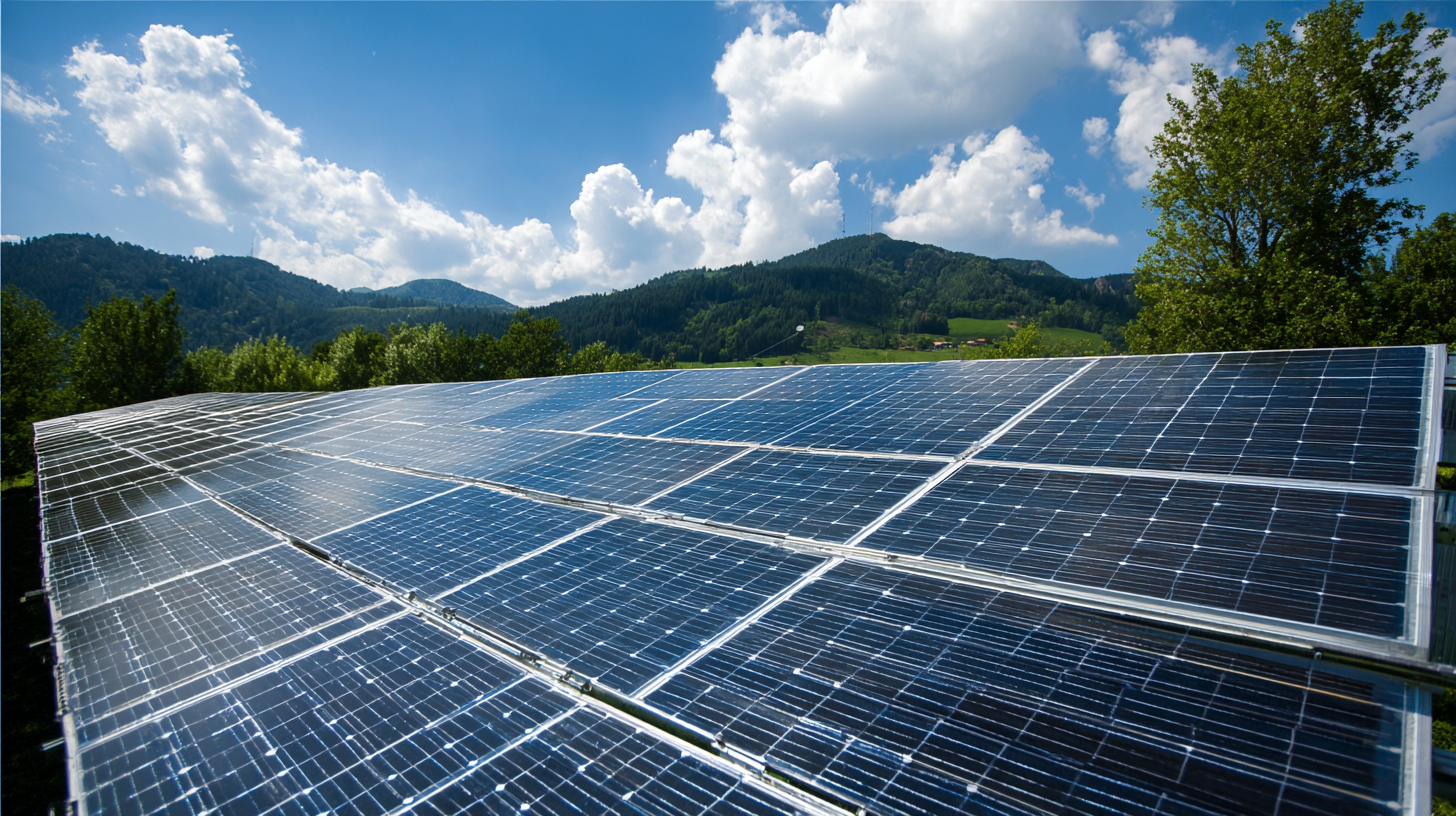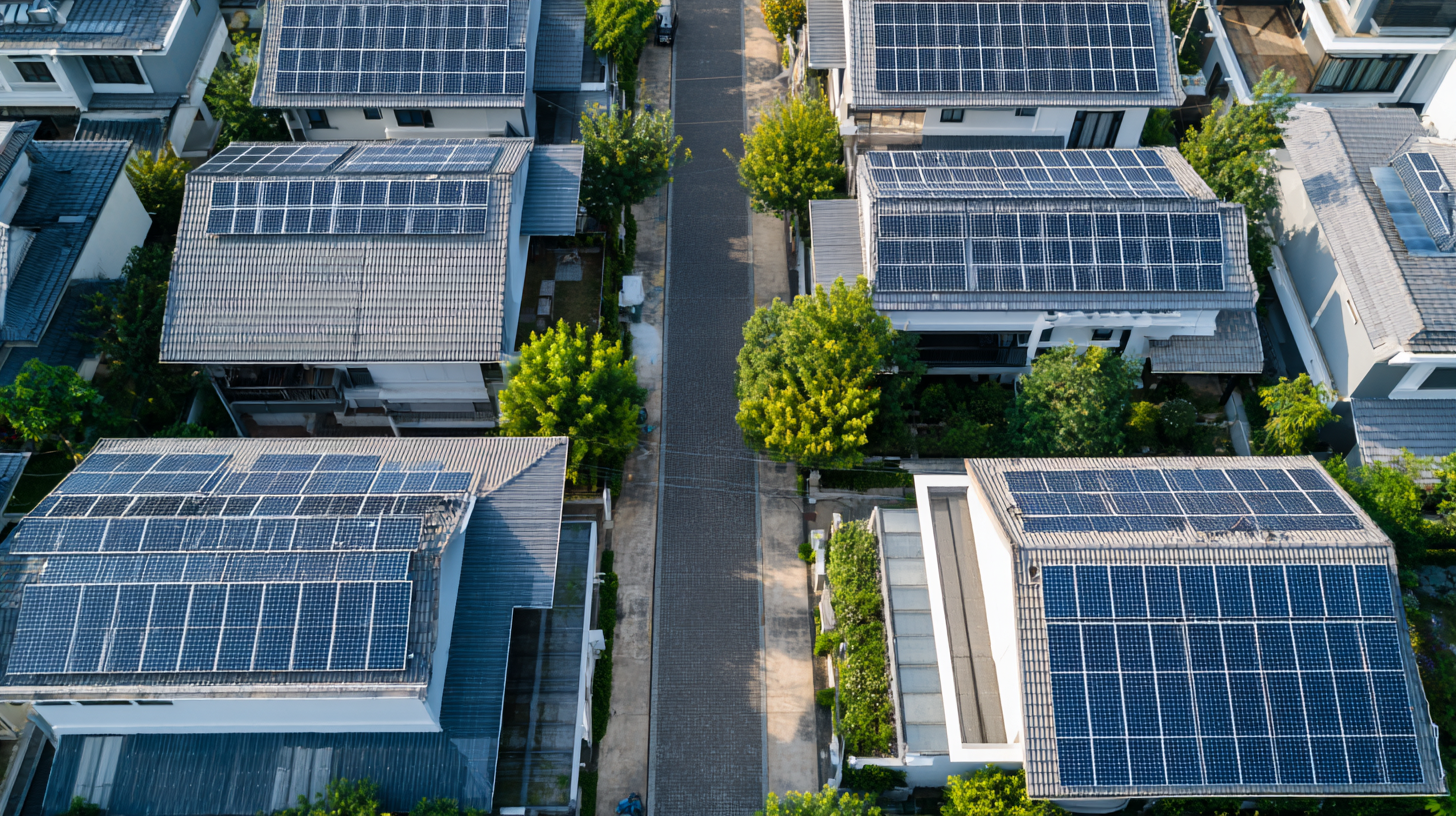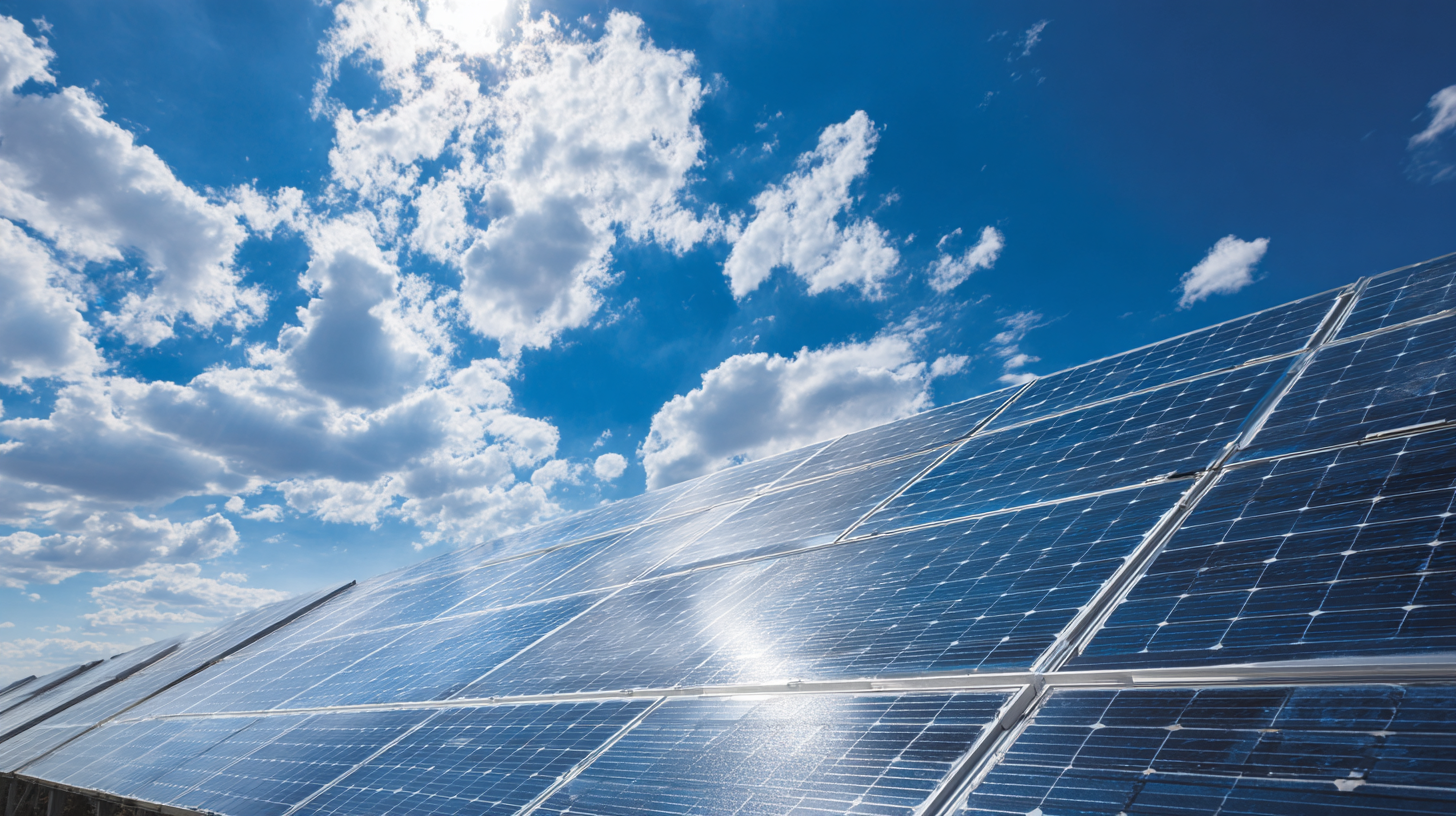Blog
- Home
- Blog
7 Essential Benefits Of The Best Solar Panels For Home Energy Savings
In recent years, the shift towards renewable energy solutions has become increasingly vital for homeowners aiming to reduce their environmental footprint and save on energy costs. Among the various alternatives available, solar panels for home use have emerged as a leading choice, offering a myriad of benefits that extend beyond mere energy savings. Understanding the different types of solar panels and their unique features is essential for making informed decisions that align with your energy needs and budget. From monocrystalline to polycrystalline and thin-film options, each type provides distinct advantages suitable for different home environments. In this blog, we will explore the seven essential benefits of the best solar panels for home energy savings, highlighting how they can enhance energy efficiency, increase property value, and contribute to a sustainable future. By delving into the characteristics and applicable ranges of these solar panel alternatives, homeowners can better navigate the path toward a greener energy solution.

Understanding Solar Panel Efficiency for Maximum Savings
The efficiency of solar panels is a crucial factor in maximizing energy savings for homeowners. Recent advancements in solar photovoltaic (PV) technology have led to significant improvements in efficiency and performance. According to research, high-efficiency solar panels can convert over 20% of sunlight into electricity, compared to older models that may only convert around 15%. This translates into greater energy production and cost savings over the lifespan of the panels. Homeowners looking to upgrade their systems can now benefit from higher efficiency rates and consequently lower electricity bills, which is particularly relevant given ongoing government incentives aimed at promoting energy efficiency.
Additionally, new energy efficiency programs, such as the Ontario Home Renovation Savings Program, offer substantial rebates for solar panel installations. Families can receive up to $10,000 towards solar and battery systems, which effectively reduces the overall investment required for these upgrades. Studies indicate that investing in solar technology not only serves environmental goals but also provides an excellent return on investment, with many homeowners recouping their installation costs within a few years due to the savings generated. This combination of advanced technology and financial incentives makes the adoption of solar panels a wise choice for sustainable home energy management.

Comparing Different Types of Solar Panels: What to Choose
When considering solar panels for home energy savings, it's crucial to compare the different types available on the market to determine which suits your needs best. The primary categories include monocrystalline, polycrystalline, and thin-film solar panels.
 Monocrystalline panels are known for their efficiency and space-saving capabilities, making them ideal for homeowners with limited roof space. These panels convert more sunlight into energy, which can result in higher energy savings over time.
Monocrystalline panels are known for their efficiency and space-saving capabilities, making them ideal for homeowners with limited roof space. These panels convert more sunlight into energy, which can result in higher energy savings over time.
On the other hand, polycrystalline panels offer a more budget-friendly option with a slightly lower efficiency rate. While these panels take up more space due to their larger size, they are still a popular choice among homeowners looking for an effective solar energy solution without breaking the bank. Lastly, thin-film panels, though less efficient than their crystalline counterparts, can be a good choice for those seeking flexibility in installation and design. They are lightweight and can be integrated into various surfaces, providing versatility for unique architectural designs. By understanding the characteristics and benefits of each type, homeowners can make an informed decision that maximizes their energy savings and suits their lifestyle.
Evaluating the Long-Term Financial Benefits of Solar Energy
Investing in solar panels has become a popular choice for homeowners looking to lower their energy bills while making a commitment to sustainability. One of the most compelling reasons to consider solar energy is its long-term financial benefits. By harnessing the power of the sun, homeowners can significantly reduce their reliance on grid electricity, which often comes with fluctuating rates. Over time, these savings can accumulate to cover the initial installation costs, leading to a positive return on investment.
Furthermore, many regions offer financial incentives, such as tax credits and rebates, that can greatly enhance the affordability of solar panel systems. Some states promote net metering policies, allowing homeowners to sell excess energy back to the grid, adding another layer of potential income. With rising utility costs and an increasing focus on renewable energy sources, going solar is not just an environmentally responsible choice; it also makes sound economic sense. As energy independence grows more valuable, investing in solar panels can provide a stable financial future for homeowners looking to secure their energy expenses for decades to come.
7 Essential Benefits Of The Best Solar Panels For Home Energy Savings - Evaluating the Long-Term Financial Benefits of Solar Energy
| Benefit | Description | Estimated Annual Savings ($) | Payback Period (Years) |
|---|---|---|---|
| Lower Electricity Bills | Reduction in monthly electricity costs due to solar energy production. | $1,500 | 5 |
| Tax Incentives | Federal and state tax credits available for solar energy installation. | $2,000 | N/A |
| Increase in Home Value | Solar installations can add value to the property when selling. | $12,000 | N/A |
| Energy Independence | Reduce reliance on non-renewable energy sources and grid electricity. | Varies | Varies |
| Low Maintenance Costs | Solar panels generally require minimal maintenance over their lifespan. | $200 | N/A |
| Environmental Impact | Reduction in carbon footprint and contribution to sustainable energy. | N/A | N/A |
| Energy Storage Benefits | Ability to use generated solar energy even when the sun isn't shining. | $300 | 6 |
How Solar Panels Enhance Home Resale Value
When considering home improvements, solar panels stand out not only for their energy-saving capabilities but also for their significant impact on resale value. Homes equipped with solar energy systems attract buyers looking for long-term savings on utility bills. The investment in solar panels often results in a higher price point when selling, as potential homeowners appreciate the ability to harness renewable energy and reduce reliance on traditional power sources.
Moreover, properties with solar panels are often perceived as eco-friendly and modern, making them more appealing in an increasingly environmentally conscious market. Many homebuyers prioritize sustainability, and a house with solar panels conveys a commitment to green living. This added allure can create a competitive advantage, increasing marketability and speeding up the sale process. As a result, homeowners looking to enhance their property’s value while contributing to a sustainable future find solar panels to be a wise and beneficial investment.
7 Essential Benefits Of The Best Solar Panels For Home Energy Savings - How Solar Panels Enhance Home Resale Value
Assessing Environmental Impact and Sustainability of Solar Panels
The environmental impact and sustainability of solar panels play a crucial role in the decision-making process for homeowners considering solar energy. When assessing these factors, it’s essential to recognize that solar panels significantly reduce greenhouse gas emissions by generating clean energy. Traditional energy sources often involve fossil fuels, which contribute to air pollution and climate change. In contrast, solar power harnesses sunlight, allowing homeowners to minimize their carbon footprint while enjoying reliable electricity.
Moreover, the sustainability of solar panels extends beyond their operational phase. Many manufacturers focus on using recyclable materials and adopting eco-friendly production practices, thereby reducing waste and resource depletion. The longevity of solar panels further enhances their sustainability; many systems can last over 25 years with minimal maintenance. This extended lifespan not only provides consistent energy savings but also means fewer materials need to be produced and disposed of, emphasizing a circular economy approach. As homeowners explore energy choices, understanding these environmental impacts can lead to more informed decisions that benefit both their finances and the planet.